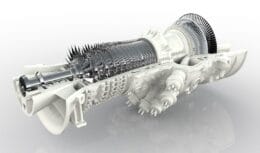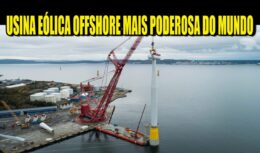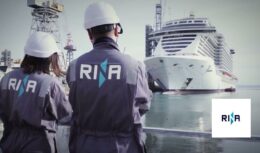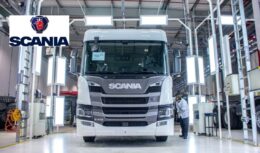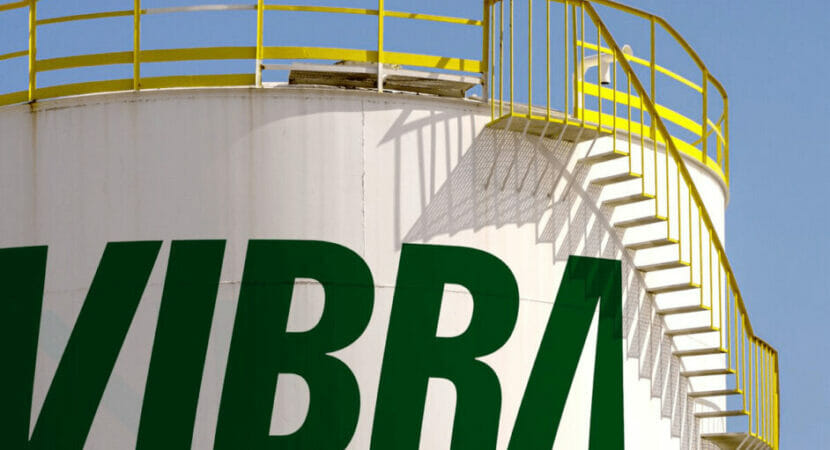
Vibra's Commercial VP highlights the importance of regulation for the growth of the low-carbon solutions and electromobility industry, citing national targets and incentives.
RIO – Ensure the decarbonisation da Vibra Energy is crucial for Brazil to achieve its emissions reduction targets. According to the Commercial Vice President of B2B at Vibra, Bernardo Kos Winik, it is essential to establish rules that promote decarbonization in the country and on the international stage.
Vibra has sought to promote environmental sustainability by means of environmental measures which aim to emission reduction of carbon. The company is committed to carbon neutralization and carbon mitigation to ensure a cleaner and more sustainable future for future generations.
Decarbonization in industry: an urgent need
According to the executive, carbon mitigation – carbon neutralization – is essential for the development of low carbon solutions, such as production of fuels sustainable aviation (SAF), biomethane and the adoption of electromobility.
‘There is a whole mobilization, pressure from all sides of society (…) anyway, now, investors also need to have legal certainty so you can make your own investments, place your Capex, advance in factories, advance in biorefineries. Clear rules, defined as quickly as possible, help us to leverage and accelerate this decarbonization process and be able to offer this to our customers', said Kos Winik at the seminar The Future of Energy Comes from Vibra, presented by epbr agency (see the full text above).
The executive highlighted that companies are already being charged to meet targets emissions to sell your products in markets with legislation more advanced, such as European countries. According to him, there is a lack of definition of mandates, deadlines e terms for fuels and other low-carbon solutions so that investors have peace of mind when making investments and scaling up decarbonization initiatives.
Regulation and low-carbon solutions in Brazil
The Fuel of the Future bill, in discussion in the Chamber of Deputies, addresses several of these topics, such as biofuels, SAF, hydrogen and biomethane.
The vice-president of Vibra recalls that Brazil is already advanced in some areas in relation to other countries, such as biofuels.
‘For those looking at the issue of diesel, we already have a mixture of 12% biodiesel, a renewable fuel, and an increase in this mandate to up to 15% is already being discussed. In gasoline, we also have the addition of anhydrous alcohol at 27%, and there are discussions on the issue of introducing SAF, which is aviation biofuel, to start having some type of date from 2027 and grow over the years.'
Regulation of biomethane and electromobility
Um market The one that still lacks regulation is biomethane, said Eduardo Acquaviva, CEO of ZEG Biogás. In this case, from the specification that must be followed by producers and traders to the rules for sharing infrastructure with gas distributors in each state, among others.
‘Today we are still, in a way, new in Brazil, we are getting structured. And this has to be done well so that the competition happen at the appropriate level’, he said. ‘So, if I have to generate a product with a certain specification, everyone should too and for this to happen, the competition must be fair and lead to business being viable.’
Challenge of regulation for electromobility
Vibra VP Bernardo Kos Winik made a parallel with solar and wind generation, which have taken a leap in development in recent years.
‘Regulation of the electricity sector has advanced. You see investments in solar generation, you see investments in wind generation, you have regulation where part of the consumers migrated to the free market and now you have a well-defined rule. Now in January 2024 you make another opening for more consumers to migrate to the free market. This is the kind of thing we are talking about, when the rules are well defined, they are clear and everyone follows them,’ she said.
EZVolt CEO, Gustavo Tannure, says that electromobility is going through a moment similar to what happened with solar generation at the beginning, without well-established rules.
‘The regulation that exists in our electromobility sector – drawing a parallel with what existed with solar generation at the beginning – was very liberal regulation, very little regulated to let the market itself grow and self-regulate. This has a good side and a bad side, logically,’ he stated.
‘There is a certain insecurity regarding the new investments that we need to make – a lot depends on investments, the infrastructure of recharge is one of the barriers to the advancement of electric vehicles, that is a fact – and today we are not sure about quotas of import of vehicles or other Incentives that may exist, there is still a great deal of uncertainty regarding the arrival of the factories. But we are optimistic about the market.’
Source: EPBR



